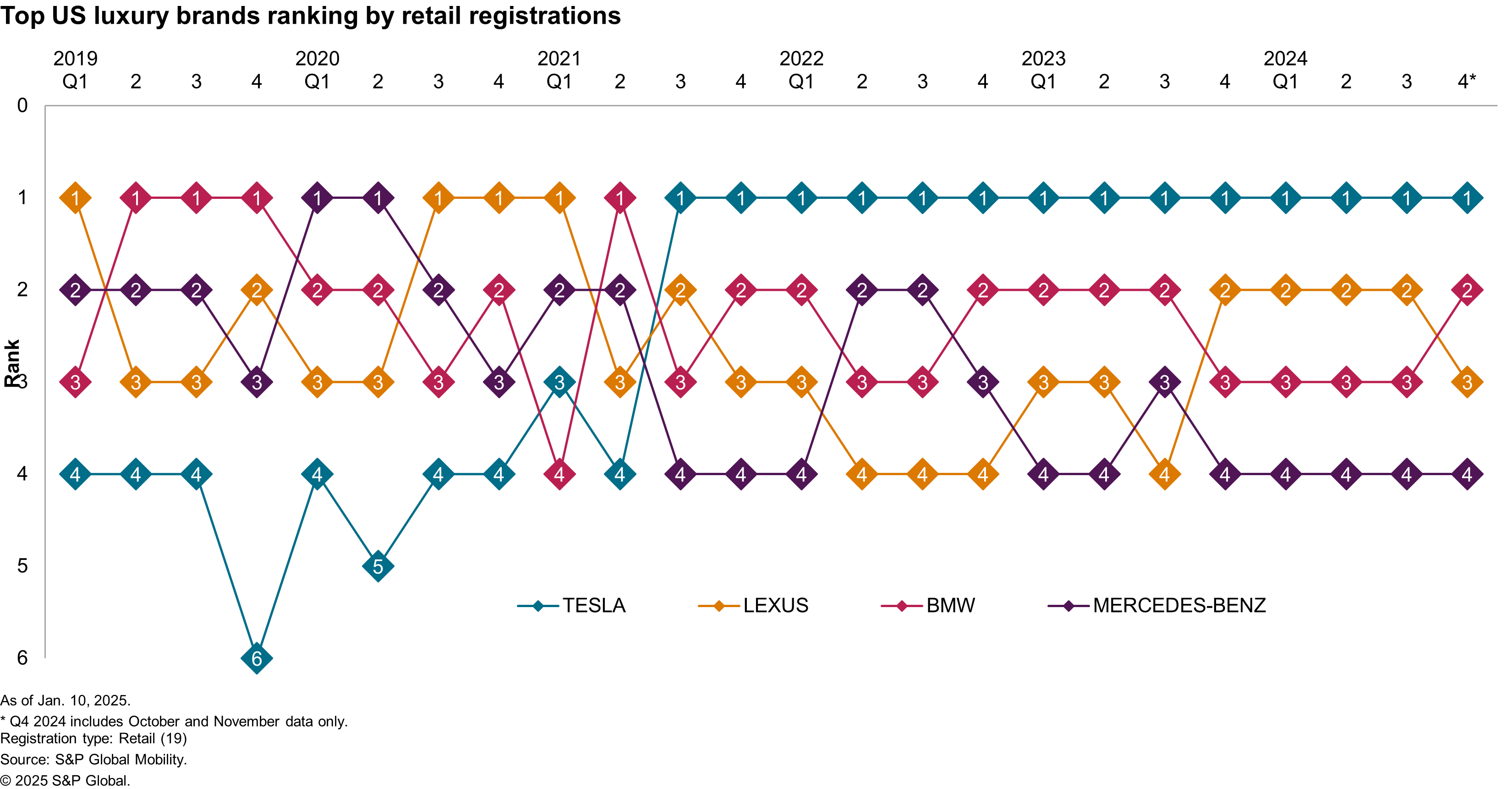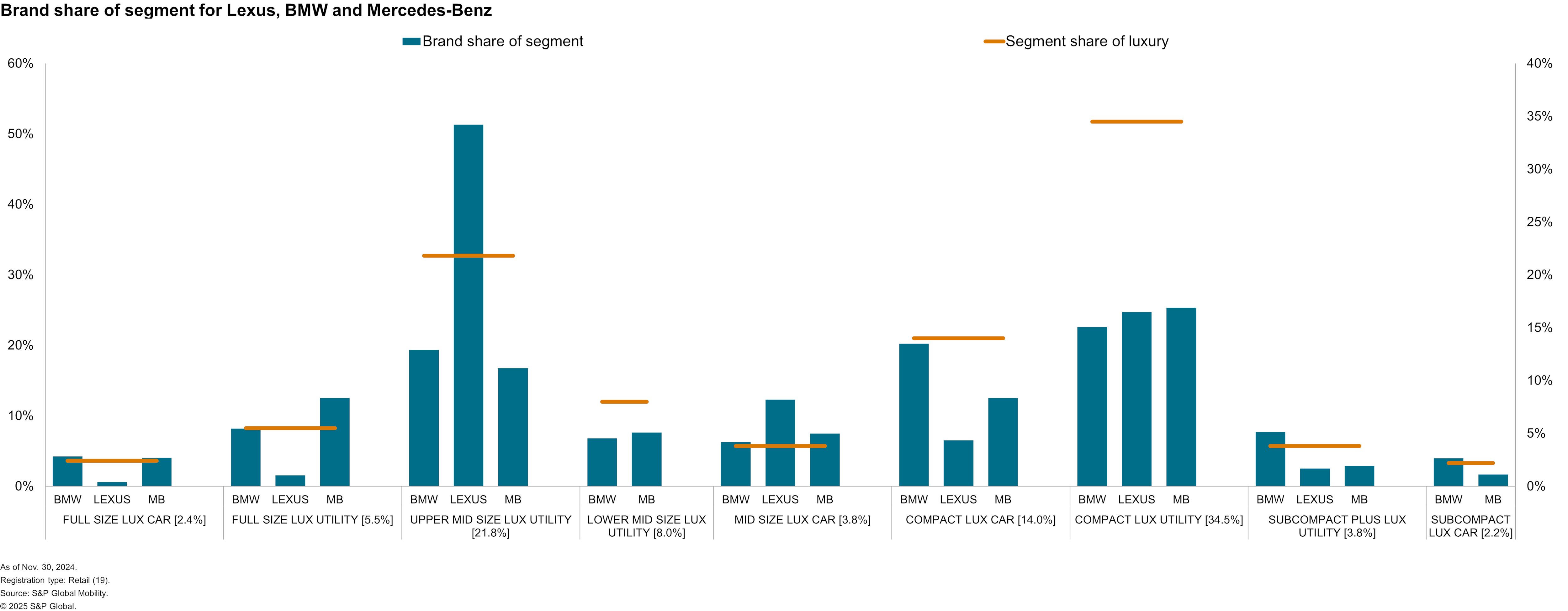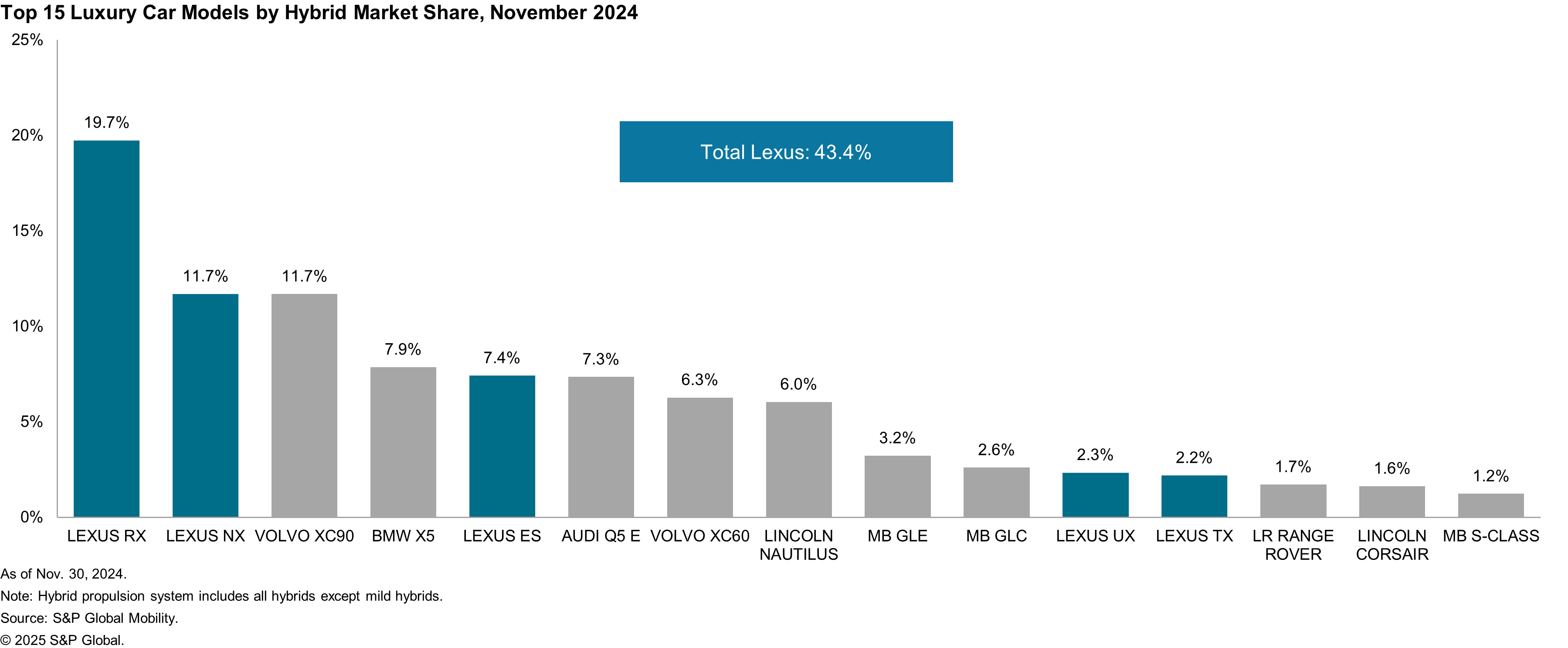Lexus’s Ascent in the US Luxury Car Market
Lexus has emerged as a frontrunner in the US luxury car market, surpassing all non-Tesla brands, according to recent data. This success marks a significant period of dominance for the brand.

Lexus’s performance is analyzed by Tom Libby, Associate Director, Industry Analysis and Loyalty Solutions, S&P Global Mobility.
Over the past four quarters (Q4 2023 to Q3 2024), Lexus has led the pack in retail registrations among non-Tesla luxury brands. This is the first time in six years that Lexus has maintained such a strong lead. Prior to this, Lexus had not achieved the number two position in the luxury segment since the third quarter of 2021.
SUVs: The Engine of Lexus’s Success
Several factors contribute to Lexus’s impressive performance, with its dominance in the SUV market playing a crucial role. The upper midsize luxury utility segment, which accounts for a significant portion of the luxury market, is where Lexus truly shines.
This segment represented 22% of retail luxury registrations throughout the first 11 months of 2024. Lexus commands over half of the new vehicle registrations in this category, largely due to the enduring popularity of the RX.

Lexus has held the top spot in the non-Tesla luxury market for four consecutive quarters.
The RX, a mainstay since 1990, has consistently been the brand’s best-selling model. From January 2014 through November 2024, the RX’s total retail volume was almost twice that of its closest competitor, the Acura MDX.
Lexus’s market share of 51% in the upper midsize luxury utility segment significantly outpaces its rivals, BMW and Mercedes-Benz, with shares of 19.4% and 16.8%, respectively.

Lexus leads the market share in the upper midsize luxury utility segment.
Lexus’s Hybrid Advantage
Lexus has also gained an edge over BMW and Mercedes-Benz in the growing hybrid market, particularly within the midsize luxury utility segment. Nationally, hybrids constituted 13% of all new US retail registrations in the initial 11 months of 2024, an increase from 10.3% the previous year. Meanwhile, electric vehicles made up 9.1% of registrations, up from 8.4% a year before. Hybrid popularity surged, reaching a monthly record of 15.3% in November 2024.
Lexus has capitalized on this trend by offering hybrid versions of its popular models. The RX, for example, accounts for over half of all new retail registrations in the upper midsize luxury utility segment, with approximately 20% of these registrations being hybrids.
Strong Performance in the Compact Luxury Segment
Lexus also holds a strong position in the compact luxury utility segment, the largest luxury category. With a 24.7% market share, Lexus surpasses BMW but trails Mercedes-Benz.
Although the Lexus NX, the brand’s entry in this segment, had an 8.3% share of new vehicle registrations through November 2024, this is the highest share of any non-Tesla model. Notably, 45% of NX registrations were hybrids.
BMW’s X3, a competitor in this segment, is not available with a hybrid option. The Mercedes-Benz GLC, while offered as a hybrid, only sees 3.2% of its retail registrations as hybrids.

Lexus dominates the hybrid market, with six models in the top 15.
Lexus’s success stems from a combination of appealing products in key market segments and the availability of hybrid options. This strategy has positioned the brand at the forefront of the non-Tesla luxury car market, offering a portfolio that resonates with today’s consumers.


